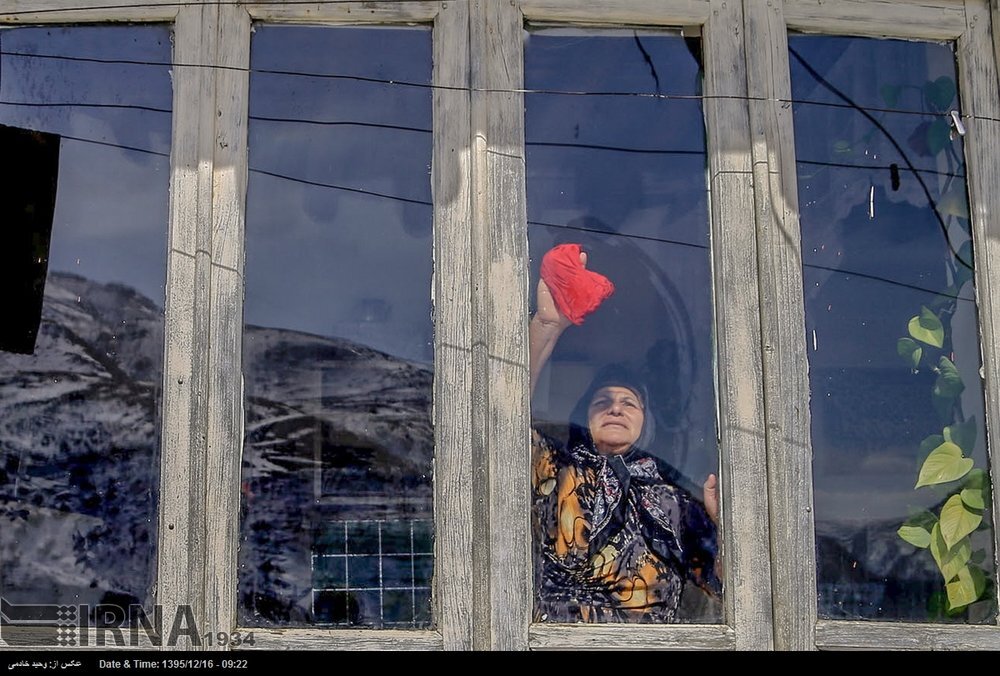Beyond dust and dirt: spring-cleaning and the art of purification

As winter fades away beyond the blossoms of spring, a tradition deeply ingrained in the hearts of Iranians comes to the forefront: Khaneh Tekani, also known as spring cleaning.
The Iranian version of spring cleaning typically begins in weeks leading up to Nowruz and can last for several days, depending on the size of a home and the extent of the housework required.
Khaneh Tekani is not merely about tidying up the physical space but also about cleansing the home of negative energies and welcoming positive vibes for the coming year. Narratives say it is closely tied to spirituality and prosperity.
The process, however, is meticulous and thorough. Every nook and cranny of the house is meticulously polished and cleaned. For instance, carpets are taken outside and beaten to remove dust and dirt accumulated over the winter months. Dirty walls are washed, windows are cleaned, and furniture is rearranged to create a fresh and inviting atmosphere.
In the past, families usually came together to undertake this task, turning it into a communal effort that fostered unity and cooperation. However, nowadays, many opt to hire someone to perform that tough work due to busy schedules, modern lifestyles, and the availability of cleaning services.
To delve deeper into the significance of Khaneh Tekani in modern Iran, I spoke with individuals from various age groups, ranging from 23 to 72 years old. Their perspectives shed light on how this tradition is perceived and practiced across different generations.
Fatemeh, a 23-year-old university student, shared his thoughts: “Khaneh Tekani is a chance for my family to come together and work towards a common goal. It’s a time of bonding and shared memories.”
Abbas, a 28-year-old employee, echoed similar sentiments: “Growing up, Khaneh Tekani was always a big event in our household. Now that I live on my own, I still make it a point to deep clean my apartment during this time. It’s a way to honor my heritage and maintain a connection to my roots.”
Narges, a 37-year-old housewife, said: “Khaneh Tekani is a time for renewal, not just for our homes but for ourselves as well. It’s a chance to let go of the past and embrace the future with a clean slate.”
Maryam, a 42-year-old psychologist, said: as a female worker, I have mixed feelings about Khaneh Tekani… Despite my weariness, I am eager to ensure that our house is thoroughly cleaned for the new year. That’s why I have decided to hire someone to help with Khaneh Tekani, but only for a two-day job.
Mohammad, a 45-year-old father of two, remarked, “With a busy work schedule and kids to take care of, Khaneh Tekani can be exhausting, but it’s also incredibly rewarding. There’s a sense of satisfaction that comes from knowing you’ve purged your home of clutter and grime.”
Hossein, a 60-year-old retired man, noted, “I remember helping my parents with Khaneh Tekani when I was a child. It was hard work, but there was a sense of pride in preparing our home for Nowruz.”
Farideh, a 72-year-old grandmother, shared her perspective: “Khaneh Tekani is a tradition that has been passed down through generations in my family. It’s time to get ready for the year ahead.”
All and all, Khaneh Tekani may carry a deep symbolic significance for Iranian nationals even those living abroad for decades. The act of purifying one’s home is believed to purify the soul and prepare individuals for the spiritual journey of the new year.
AFM
Leave a Comment